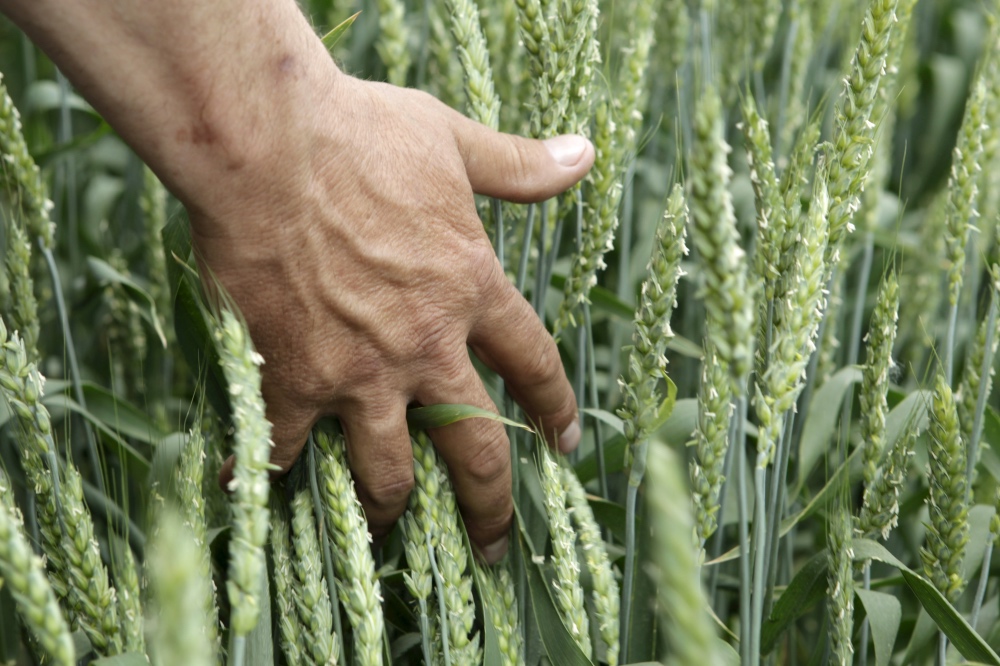Rome, Italy
Thomson Reuters Foundation
Climate change could spur stronger crop-wilting heatwaves that hit several of the world’s major grain producing regions simultaneously, potentially sparking food shortages and unrest, researchers warned this week.
Crop failures in one part of the world – from weather disasters or other causes – have traditionally been offset with increased trade from other areas with normal or above normal harvests, said climatologist Dim Coumou, a co-author of the study published in the journal Nature Climate Change.
But a pattern of waves in the strong jet stream winds that circle high above the Earth’s surface, combined with hotter climate-driven temperatures, could threaten crops in multiple breadbasket regions at once, the study noted.

Under-ripe wheat in a field of an agricultural scientific-research institute of Mikhailovsk town in Stavropol region, southern Russia, on 2nd June, 2015. PICTURE: Reuters/Eduard Korniyenko
Most vulnerable are the western regions of North America, western Europe, and western Russia and Ukraine, which together grow about a quarter of the world’s staple grains such as wheat, maize, soy and rice, are very susceptible to such heatwaves.
The jetstream pattern was associated with devastating heatwaves in western Europe in 2003 and 2018, and in Russia in 2010, said Coumou, of the Potsdam Institute for Climate Impact Research, and an associate professor at VU Amsterdam.
“We show in this analysis that whenever these waves emerge, crops are negatively affected in these regions at the same time,” he told the Thomson Reuters Foundation.
Two or more hot summer weeks under the weather pattern can cause 4% crop losses in the affected areas, with wider regional losses up to 11 per cent, the paper noted.
Production declines in the regions could lead to global food price spikes if affected countries impose export bans to ensure sufficient food supplies in their own countries, the paper added.
“The 2010 heatwave in Russia caused major harvest failures which led to a national export ban on grains,” said Kai Kornhuber, the study’s lead author and a postdoctoral researcher at Columbia University’s Earth Institute.
While many factors affect food prices, the export ban “contributed to a increase of 50 per cent in [global] wheat prices by the end of the year. This price spike has been connected to the Arab Spring unrest,” he said.
The concern, he said, is that “in a warming climate, extreme heat events will get more severe”.
Researchers said it is unclear if these wind patterns would occur more frequently or last longer due to climate change. But even if they remain unchanged their effect would be amplified as the planet’s mean temperature rises, they said.
The latest study on the impact of climate change on agriculture follows recent warnings of simultaneous falls in food production from both farming and marine fisheries and how water shortages could jeopardise crop yields.





